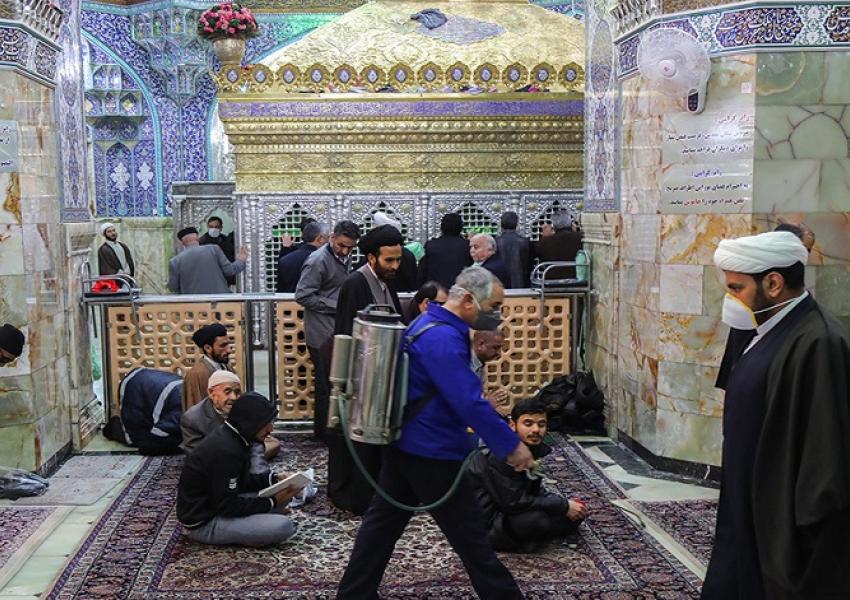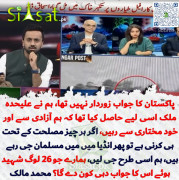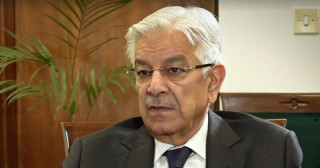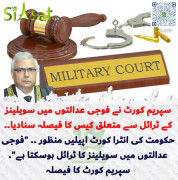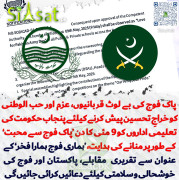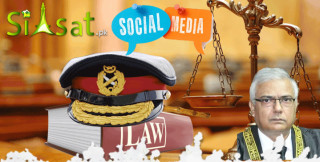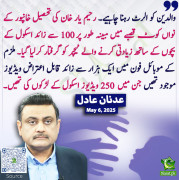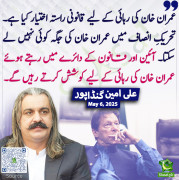What is not taught in schools?
“I have to deplore the systematic manner in which the literature of Europe has contrived to put out of sight our scientific obligations to the Mohammedans. Surely they cannot be much longer hidden. Injustice founded on religious rancour and national conceit cannot be perpetuated forever. [J. W. Draper: The History of the Intellectual Development of Europe, page 356, 2nd Edition, 1864]
What is Taught: The first mention of man in flight was by Roger Bacon, who drew a flying apparatus. Leonardo da Vinci also conceived of airborne transport and drew several prototypes.
What should be Taught:""IBN FIRNAS"" of Islamic Spain invented, constructed and tested a flying machine in the 800’s A.D. Roger Bacon learned of flying machines from Arabic references to Ibn Firnas’ machine. The latter’s invention antedates Bacon by 500 years and Da Vinci by some 700 years.
What is taught: Glass mirrors were first produced in 1291 in Venice.
What should be Taught: Glass mirrors were in use in ""ISLAMIC SPAIN"" as early as the 11th century. The Venetians learned of the art of fine glass production from Syrian artisans during the 9th and 10th centuries.
What is Taught: Until the 14th century, the only type of clock available was the water clock. In 1335, a large mechanical clock was erected in Milan, Italy. This was possibly the first weight-driven clock.
What Should be Taught: A variety of mechanical clocks were produced BY SPANISH MUSLIM ENGINEERS, both large and small, and this knowledge was transmitted to Europe through Latin translations of Islamic books on mechanics. These clocks were weight-driven. Designs and illustrations of epi-cyclic and segmental gears were provided. One such clock included a mercury escapement. The latter type was directly copied by Europeans during the 15th century. In addition, during the 9th century, IBN FIRNAS of Islamic Spain, according to Will Durant, invented a watch-like device which kept accurate time. The Muslims also constructed a variety of highly accurate astronomical clocks for use in their observatories.
What is Taught: In the 17th century, the pendulum was developed by Galileo during his teenage years. He noticed a chandelier swaying as it was being blown by the wind. As a result, he went home and invented the pendulum.
What Should be Taught: The pendulum was discovered by ""IBN YUNUS AL-MASRI""" during the 10th century, who was the first to study and document its oscillatory motion. Its value for use in clocks was introduced by Muslim physicists during the 15th century.
What is Taught: Movable type and the printing press was invented in the West by Johannes Gutenberg of Germany during the 15th century.
What Should be Taught: In 1454, Gutenberg developed the most sophisticated printing press of the Middle Ages. However, movable brass type was in use in Islamic Spain 100 years prior, and that is where the West’s first printing devices were made.
What is Taught: Isaac Newton’s 17th century study of lenses, light and prisms forms the foundation of the modern science of optics .
What Should be Taught: In the 1lth century"" AL-HAYTHAM"" determined virtually everything that Newton advanced regarding optics centuries prior and is regarded by numerous authorities as the “founder of optics. ” There is little doubt that Newton was influenced by him. Al-Haytham was the most quoted physicist of the Middle Ages. His works were utilized and quoted by a greater number of European scholars during the 16th and 17th centuries than those of Newton and Galileo combined.
What is Taught: Isaac Newton, during the 17th century, discovered that white light consists of various rays of colored light.
What Should be Taught: This discovery was made in its entirety BY AL-HAYTHAM (11th century) and ""Kamal ad-Din"" (14th century). Newton did make original discoveries, but this was not one of them.
What is Taught: The concept of the finite nature of matter was first introduced by Antione Lavoisier during the 18th century. He discovered that, although matter may change its form or shape, its mass always remains the same. Thus, for instance, if water is heated to steam, if salt is dissolved in water or if a piece of wood is burned to ashes, the total mass remains unchanged.
What Should be Taught: The principles of this discovery were elaborated centuries before by Islamic Persia’s great scholar, """AL-BIRUNI"""" (d. 1050). Lavoisier was a disciple of the Muslim chemists and physicists and referred to their books frequently.
What is Taught: The Greeks were the developers of TRIGONOMETRY.
What Should be Taught: Trigonometry remained largely a theoretical science among the Greeks. It was developed to a level of modern perfection by Muslim scholars, although the weight of the credit must be given to ""al-Battani"". The words describing the basic functions of this science, sine, cosine and tangent, are all derived from Arabic terms. Thus, original contributions by the Greeks in trigonometry were minimal.
What is Taught: The use of decimal fractions in mathematics was first developed by a Dutchman, Simon Stevin, in 1589. He helped advance the mathematical sciences by replacing the cumbersome fractions, for instance, 1/2, with decimal fractions, for example, 0.5.
What Should be Taught: Muslim mathematicians were the first to utilize decimals instead of fractions on a large scale. ""AL-KASHI’S"" book, Key to Arithmetic, was written at the beginning of the 15th century and was the stimulus for the systematic application of decimals to whole numbers and fractions thereof. It is highly probably that Stevin imported the idea to Europe from al-Kashi’s work.
What is Taught: The first man to utilize algebraic symbols was the French mathematician, Francois Vieta. In 1591, he wrote an algebra book describing equations with letters such as the now familiar x and y’s. Asimov says that this discovery had an impact similar to the progression from Roman numerals to Arabic numbers.
What Should be Taught: Muslim mathematicians, the inventors of algebra, introduced the concept of using letters for unknown variables in equations as early as the 9th century A.D. Through this system, they solved a variety of complex equations, including quadratic and cubic equations. They used symbols to develop and perfect the binomial theorem.
What is Taught: The difficult cubic equations (x to the third power) remained unsolved until the 16th century when Niccolo Tartaglia, an Italian mathematician, solved them.
What Should be Taught: CUBIC EQUATIONS as well as numerous equations of even higher degrees were solved with ease by Muslim mathematicians as early as the 10th century.
What is Taught: The concept that numbers could be less than zero, that is negative numbers, was unknown until 1545 when Geronimo Cardano introduced the idea.
What Should he Taught: Muslim mathematicians introduced negative numbers for use in a variety of arithmetic functions at least 400 years prior to Cardano.
What is Taught: In 1614, John Napier invented logarithms and logarithmic tables.
What Should be Taught: Muslim mathematicians invented LOGARITHMS and produced logarithmic tables several centuries prior. Such tables were common in the Islamic world as early as the 13th century.
What is Taught: During the 17th century Rene Descartes made the discovery that algebra could be used to solve geometrical problems. By this, he greatly advanced the science of geometry.
What Should be Taught: Mathematicians of the Islamic Empire accomplished precisely this as early as the 9th century A.D. THABIT BIN QURRAH was the first to do so, and he was followed by ABU’L WAFA, whose 10th century book utilized algebra to advance geometry into an exact and simplified science.
What is Taught: Isaac Newton, during the 17th century, developed the binomial theorem, which is a crucial component for the study of algebra.
What Should be Taught: Hundreds of Muslim mathematicians utilized and perfected the binomial theorem. They initiated its use for the systematic solution of ALGEBRAIC problems during the 10th century (or prior).
What is Taught: No improvement had been made in the astronomy of the ancients during the Middle Ages regarding the motion of planets until the 13th century. Then Alphonso the Wise of Castile (Middle Spain) invented the Aphonsine Tables, which were more accurate than Ptolemy’s.
What Should be Taught: MUSLIM ASTRONOMERS made numerous improvements upon Ptolemy’s findings as early as the 9th century. They were the first astronomers to dispute his archaic ideas. In their critic of the Greeks, they synthesized proof that the sun is the center of the solar system and that the orbits of the earth and other planets might be elliptical. They produced hundreds of highly accurate astronomical tables and star charts. Many of their calculations are so precise that they are regarded as contemporary. The Alphonsine Tables are little more than copies of works on astronomy transmitted to Europe via Islamic Spain, i.e. the Toledo Tables.
What is Taught: The English scholar Roger Bacon (d. 1292) first mentioned glass lenses for improving vision. At nearly the same time, eyeglasses could be found in use both in China and Europe.
What Should be Taught: IBN FIRNAS of Islamic Spain invented eyeglasses during the 9th century, and they were manufactured and sold throughout Spain for over two centuries. Any mention of eyeglasses by Roger Bacon was simply a regurgitation of the work of AL-HAYTHAM (d. 1039), who’s research Bacon frequently referred to.
What is Taught: Gunpowder was developed in the Western world as a result of Roger Bacon’s work in 1242. The first usage of gunpowder in weapons was when the Chinese fired it from bamboo shoots in attempt to frighten Mongol conquerors. They produced it by adding sulfur and charcoal to saltpeter.
What Should be Taught: The Chinese developed saltpeter for use in fireworks and knew of no tactical military use for gunpowder, nor did they invent its formula. Research by Reinuad and Fave have clearly shown that gunpowder was formulated initially by Muslim chemists. Further, these historians claim that the Muslims developed the first fire-arms. Notably, Muslim armies USED GRENADES and other weapons in their defence of Algericus against the Franks during the 14th century. Jean Mathes indicates that the Muslim rulers had stock-piles of grenades, rifles, crude cannons, incendiary devices, sulfur bombs and pistols decades before such devices were used in Europe. The first mention of cannon was in an Arabic text around 1300 A.D. Roger Bacon learned of the formula for gunpowder from Latin translations of Arabic books. He brought forth nothing original in this regard.
What is Taught: The compass was invented by the Chinese who may have been the first to use it for navigational purposes sometime between 1000 and 1100 A.D. The earliest reference to its use in navigation was by the Englishman, Alexander Neckam (1157-1217).
What Should be Taught: Muslim geographers and NAVIGATORS Learned of the magnetic needle, possibly from the Chinese, and were the first to use magnetic needles in navigation. They invented the compass and passed the knowledge of its use in navigation to the West. European navigators relied on Muslim pilots and their instruments when exploring unknown territories. Gustav Le Bon claims that the magnetic needle and compass were entirely invented by the Muslims and that the Chinese had little to do with it. Neckam, as well as the Chinese, probably learned of it from Muslim traders. It is noteworthy that the Chinese improved their navigational expertise after they began interacting with the Muslims during the 8th century.
What is Taught: The first man to classify the races was the German Johann F. Blumenbach, who divided mankind into white, yellow, brown, black and red peoples.
What Should be Taught: Muslim scholars of the 9th through 14th centuries invented the science of ethnography. A number of Muslim geographers classified the races, writing detailed explanations of their unique cultural habits and physical appearances. They wrote thousands of pages on this subject. Blumenbach’s works were insignificant in comparison.
What is Taught: The science of geography was revived during the 15th, 16th and 17th centuries when the ancient works of Ptolemy were discovered. The Crusades and the Portuguese/Spanish expeditions also contributed to this reawakening. The first scientifically- based treatise on geography were produced during this period by Europe’s scholars.
What Should be Taught: Muslim geographers produced untold volumes of books on the geography of Africa, Asia, India, China and the Indies during the 8th through 15th centuries. These writings included the world’s first geographical encyclopedias, almanacs and road maps. IBN BATTUTAH’S 14 th century masterpieces provide a detailed view of the geography of the ancient world. The Muslim geographers of the 10th through 15th centuries far exceeded the output by Europeans regarding the geography of these regions well into the 18th century. The Crusades led to the destruction of educational institutions, their scholars and books. They brought nothing substantive regarding geography to the Western world.
What is Taught: Robert Boyle, in the 17th century, originated the science of chemistry.
What Should be Taught: A variety of Muslim chemists, including AR-RAZI, AL-JABR, AL-BIRUNI AND AL-KINDI, performed scientific experiments in chemistry some 700 years prior to Boyle. Durant writes that the Muslims introduced the experimental method to this science. Humboldt regards the Muslims as the founders of chemistry.
What is Taught: Leonardo da Vinci (16th century) fathered the science of geology when he noted that fossils found on mountains indicated a watery origin of the earth.
What Should be Taught: Al-Biruni (1lth century) made precisely this observation and added much to it, including a huge book on geology, hundreds of years before Da Vinci was born. IBN SINA noted this as well (see pages 100-101). it is probable that Da Vinci first learned of this concept from Latin translations of Islamic books. He added nothing original to their findings.
What is Taught: The first mention of the geological formation of valleys was in 1756, when Nicolas Desmarest proposed that they were formed over long periods of time by streams.
What Should be Taught: Ibn Sina and al-Biruni made precisely this discovery during the 11th century (see pages 102 and 103), fully 700 years prior to Desmarest.
What is Taught: Galileo (17th century) was the world’s first great experimenter.
What Should be Taught: Al-Biruni (d. 1050) was the world’s first great experimenter. He wrote over 200 books, many of which discuss his precise experiments. His literary output in the sciences amounts to some 13,000 pages, far exceeding that written by Galileo or, for that matter, Galileo and Newton combined.
What is Taught: The Italian Giovanni Morgagni is regarded as the father of pathology because he was the first to correctly describe the nature of disease.
What Should be Taught: Islam’s surgeons were the first pathologists. They fully realized the nature of disease and described a variety of diseases to modern detail. IBN ZUHR correctly described the nature of pleurisy, tuberculosis and pericarditis. AZ-ZAHRAWI accurately documented the pathology of hydrocephalus (water on the brain) and other congenital diseases. IBN AL-QUFF AND IBN AN-NAFS gave perfect descriptions of the diseases of circulation. Other Muslim surgeons gave the first accurate descriptions of certain malignancies, including cancer of the stomach, bowel and esophagus. These surgeons were the originators of pathology, not Giovanni Morgagni.
What is Taught: Paul Ehrlich (19th century) is the originator of drug chemotherapy, that is the use of specific drugs to kill microbes.
What Should be Taught: Muslim physicians used a variety of specific substances to destroy microbes. They applied sulfur topically specifically to kill the scabies mite. AR-RAZI (10th century) used mercurial compounds as topical antiseptics.
What is Taught: Purified alcohol, made through distillation, was first produced by Arnau de Villanova, a Spanish alchemist, in 1300 A.D.
What Should be Taught: Numerous Muslim chemists produced medicinal-grade alcohol through distillation as early as the 10th century and manufactured on a large scale the first distillation devices for use in chemistry. They used alcohol as a solvent and antiseptic.
What is Taught: The first surgery performed under inhalation anesthesia was conducted by C.W. Long, an American, in 1845.
What Should be Taught: Six hundred years prior to Long, Islamic Spain’s AZ-ZAHRAWI AND IBN ZUHR, among other Muslim surgeons, performed hundreds of surgeries under inhalation anesthesia with the use of narcotic-soaked sponges which were placed over the face.
What is Taught: During the 16th century Paracelsus invented the use of opium extracts for anesthesia.
What Should be Taught: Muslim physicians introduced the anesthetic value of opium derivatives during the Middle Ages. Opium was originally used as an anesthetic agent by the Greeks. Paracelus was a student of Ibn Sina’s works from which it is almost assured that he derived this idea.
What is Taught: Modern anesthesia was invented in the 19th century by Humphrey Davy and Horace Wells.
What Should be Taught: Modern anesthesia was discovered, mastered and perfected by Muslim anesthetists 900 years before the advent of Davy and Wells. They utilized oral as well as inhalant anesthetics.
What is Taught: The concept of quarantine was first developed in 1403. In Venice, a law was passed preventing strangers from entering the city until a certain waiting period had passed. If, by then, no sign of illness could be found, they were allowed in.
What Should be Taught: The concept of quarantine was first introduced in the 7th century A.D. by the prophet Muhammad, who wisely warned against entering or leaving a region suffering from plague. As early as the 10th century, Muslim physicians innovated the use of isolation wards for individuals suffering with communicable diseases.
What is Taught: The scientific use of antiseptics in surgery was discovered by the British surgeon Joseph Lister in 1865.
What Should be Taught: As early as the 10th century, MUSLIM PHYSICIANS AND SURGEONS were applying purified alcohol to wounds as an antiseptic agent. Surgeons in Islamic Spain utilized special methods for maintaining ANTISEPSIS prior to and during surgery. They also originated specific protocols for maintaining hygiene during the post-operative period. Their success rate was so high that dignitaries throughout Europe came to Cordova, Spain, to be treated at what was comparably the “Mayo Clinic” of the Middle Ages.
What is Taught: In 1545, the scientific use of surgery was advanced by the French surgeon Ambroise Pare. Prior to him, surgeons attempted to stop bleeding through the gruesome procedure of searing the wound with boiling oil. Pare stopped the use of boiling oils and began ligating arteries. He is considered the “father of rational surgery.” Pare was also one of the first Europeans to condemn such grotesque “surgical” procedures as trepanning (see reference #6, pg. 110).
What Should be Taught: Islamic Spain’s illustrious surgeon, az-Zahrawi (d. 1013), began ligating arteries with fine sutures over 500 years prior to Pare. He perfected the use of CATGUT that is suture made from animal intestines. Additionally, he instituted the use of cotton plus wax to plug bleeding wounds. The full details of his works were made available to Europeans through Latin translations.
Despite this, barbers and herdsmen continued be the primary individuals practicing the “art” of surgery for nearly six centuries after az-Zahrawi’s death. Pare himself was a barber, albeit more skilled and conscientious than the average ones.
Included in AZ-ZAHRAWI’S legacy are dozens of books. His most famous work is a 30 volume treatise on medicine and surgery. His books contain sections on preventive medicine, nutrition, cosmetics, drug therapy, surgical technique, anesthesia, pre and post-operative care as well as drawings of some 200 surgical devices, many of which he invented. The refined and scholarly az-Zahrawi must be regarded as the father and founder of rational surgery, not the uneducated Pare.
What is Taught: William Harvey, during the early 17th century, discovered that blood circulates. He was the first to correctly describe the function of the heart, arteries and veins. Rome’s Galen had presented erroneous ideas regarding the circulatory system, and Harvey was the first to determine that blood is pumped throughout the body via the action of the heart and the venous valves. Therefore, he is regarded as the founder of human physiology.
What Should be Taught: In the 10th century, Islam’s ar-Razi wrote an in-depth treatise on the venous system, accurately describing the function of the veins and their valves. Ibn an-Nafs and Ibn al-Quff (13th century) provided full documentation that the blood circulates and correctly described the physiology of the heart and the function of its valves 300 years before Harvey. William Harvey was a graduate of Italy’s famous Padua University at a time when the majority of its curriculum was based upon Ibn Sina’s and ar-Razi’s textbooks.
What is Taught: The first pharmacopeia (book of medicines) was published by a German scholar in 1542. According to World Book Encyclopedia, the science of pharmacology was begun in the 1900’s as an off-shoot of chemistry due to the analysis of crude plant materials. Chemists, after isolating the active ingredients from plants, realized their medicinal value.
What Should be Taught: According to the eminent scholar of Arab history, Phillip Hitti, the Muslims, not the Greeks or Europeans, wrote the first “modern” pharmacopeia. The science of pharmacology was originated by Muslim physicians during the 9th century. They developed it into a highly refined and exact science. Muslim chemists, pharmacists and physicians produced thousands of drugs and/or crude herbal extracts one thousand years prior to the supposed birth of pharmacology. During the 14th century IBN BAYTAR wrote a monumental pharmacopeia listing some 1400 different drugs. Hundreds of other pharmacopeias were published during the Islamic Era. It is likely that the German work is an offshoot of that by Ibn Baytar, which was widely circulated in Europe.
What is Taught: The discovery of the scientific use of drugs in the treatment of specific diseases was made by Paracelsus, the Swiss-born physician, during the 16th century. He is also credited with being the first to use practical experience as a determining factor in the treatment of patients rather than relying exclusively on the works of the ancients.
What Should be Taught: AR-RAZI, IBN SINA, AL-KINDI, IBN RUSHD, AZ -ZAHRAWI, IBN ZUHR, IBN BAYTAR, IBN AL-JAZZAR, IBN JULJUL, IBN AL-QUFF, IBN AN-NAFS, AL-BIRUNI, IBN SAHL and hundreds of other Muslim physicians mastered the science of drug therapy for the treatment of specific symptoms and diseases. In fact, this concept was entirely their invention. The word “drug” is derived from Arabic. Their use of practical experience and careful observation was extensive. Muslim physicians were the first to criticize ancient medical theories and practices. Ar-Razi devoted an entire book as a critique of Galen’s anatomy. The works of Paracelsus are insignificant compared to the vast volumes of medical writings and original findings accomplished by the medical giants of Islam.
What is Taught: The first sound approach to the treatment of disease was made by a German, Johann Weger, in the 1500’s.
What Should be Taught: Harvard’s George Sarton says that modern medicine is entirely an Islamic development and that Setting the Record Straight the Muslim physicians of the 9th through 12th centuries were precise, scientific, rational and sound in their approach. Johann Weger was among thousands of Europeans physicians during the 15th through 17th centuries who were taught the medicine of ar-Razi and Ibn Sina. He contributed nothing original.
What is Taught: Medical treatment for the insane was modernized by Philippe Pinel when in 1793 he operated France’s first insane asylum.
What Should be Taught: As early as the 1lth century, Islamic hospitals maintained special wards for the insane. They treated them kindly and presumed their disease was real at a time when the insane were routinely burned alive in Europe as witches and sorcerers.
"The bewitched" were taken for mental illness and, for the first time in history, the mentally ill were treated with supportive care, drugs and psychotherapy. Every major Islamic city maintained an insane asylum where patients were treated at no charge. In fact, the Islamic system for the treatment of the insane excels in comparison to the current model, as it was more humane and was highly effective as well.
What is Taught: Kerosine was first produced by the an Englishman, Abraham Gesner, in 1853. He distilled it from asphalt.
What Should be Taught: Muslim chemists produced KEROSINE as a distillate from petroleum products over 1,000 years prior to Gesner (see Encyclopaedia Britannica under the heading, Petroleum).



